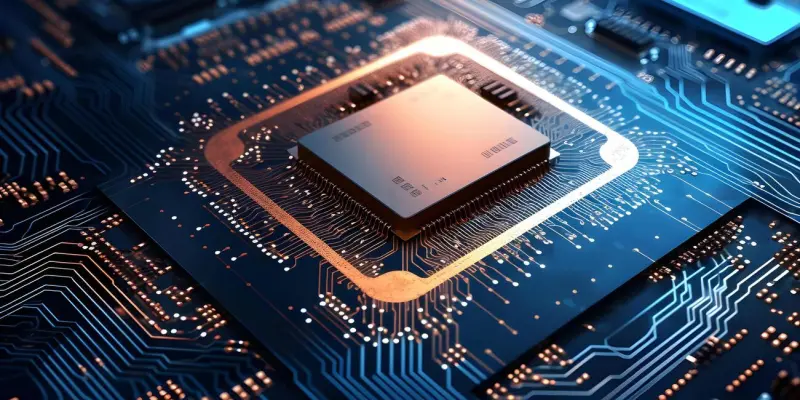In a significant advancement for cloud computing infrastructure, Google Cloud has integrated AMD’s 5th Gen EPYC “Turin” processors into its AI servers, delivering considerable improvements in performance and efficiency. The new C4D and H4D virtual machines powered by these processors are designed to handle general-purpose computing workloads and high-performance computing (HPC) tasks, including AI inference. This integration marks a critical step in the ongoing competition in the server CPU market, traditionally dominated by Intel, highlighting AMD’s growing influence and capabilities.
Performance Gains with the “Zen 5” Architecture
AMD’s 5th Gen EPYC processors, built on the “Zen 5” architecture, have demonstrated impressive performance gains. The C4D instances, equipped with these processors, deliver up to 80% higher throughput per virtual CPU compared to previous generations. This substantial improvement makes them ideal for general-purpose computing tasks. The H4D instances, optimized for HPC workloads, leverage Cloud RDMA to efficiently scale up to tens of thousands of cores, ensuring leadership performance and scalability for the most demanding applications. This demonstrates AMD’s ability to provide robust solutions for cloud-based infrastructure, catering to a wide array of computational needs. The “Zen 5” architecture’s design plays a pivotal role in delivering these performance enhancements. By optimizing core efficiency and throughput, AMD has managed to close the performance gap with its main competitor, Intel’s Xeon CPUs. This shift signifies a broader trend in the server CPU market, with AMD’s recent generations of EPYC processors, including the 5th Gen “Turin” lineup, positioning the company as a formidable competitor. The integration of these CPUs into Google Cloud’s infrastructure underscores the growing acceptance and trust in AMD’s technology for high-stakes computing environments.
Unveiling the Power of EPYC 9005 Server CPUs
While Google has not explicitly disclosed which specific EPYC 9005 server CPUs power their latest AI clusters, it is speculated that flagship models like the EPYC 9965 with 192 cores, the EPYC 9755 with 128 cores, and the EPYC 9575F, the first 5 GHz EPYC SKU, are likely candidates. These models are known for their remarkable core counts and clock speeds, providing the computational muscle needed for intensive AI workloads and large-scale data processing tasks. The adoption of these high-end CPUs by Google Cloud reflects the growing need for powerful and efficient computing resources in the cloud. As AI and machine learning applications continue to evolve and become more complex, the demand for servers capable of handling such tasks will only increase. AMD’s EPYC processors are well-positioned to meet this demand, offering the necessary performance and efficiency to support the next generation of AI-driven technologies. This partnership between Google Cloud and AMD highlights the importance of leveraging advanced hardware to keep up with the rapidly changing landscape of cloud computing and AI research.
Future Prospects for AI and Cloud Computing
Google Cloud has made a notable leap in cloud computing infrastructure by integrating AMD’s 5th Gen EPYC “Turin” processors into its AI servers. This upgrade brings significant enhancements in both performance and efficiency to the cloud platform. The introduction of new C4D and H4D virtual machines, powered by these advanced processors, is targeted at managing general-purpose computing workloads as well as high-performance computing (HPC) tasks, including AI inference. This new integration signifies a crucial development in the competitive server CPU market, which has long been dominated by Intel. By incorporating AMD’s state-of-the-art processors, Google Cloud is acknowledging AMD’s increasing influence and capabilities in the field of data processing and computational technology. This step not only underscores Google’s commitment to pushing the envelope in cloud infrastructure but also shines a spotlight on AMD’s journey toward becoming a formidable player in the server CPU ecosystem.

